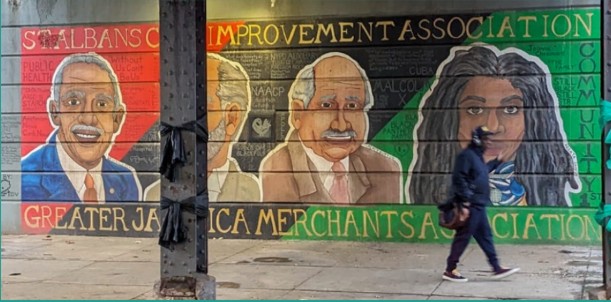In just a few years, artificial intelligence has gone from an abstract concept to a ubiquitous technology, integrated into our daily lives. For New York’s small businesses, it’s already reshaping how they operate and better serve their customers. The Initiative for a Competitive Inner City reports that 89% of small businesses are using AI, with more than 60% saying that it increases productivity. AI tracks inventory, builds more impactful marketing strategies, streamlines scheduling, and responds to customer inquiries more quickly than ever before. It saves time and levels the playing field for local businesses to compete with larger companies.
That kind of digital transformation is the result of New York’s unique conditions––an innovation ecosystem second only to Silicon Valley, an unmatched pool of tech talent and small business leaders, and the presence of industries like media, finance, and healthcare that demand fast, functional solutions. In a city where time is money, entrepreneurs are building AI tools that solve real world problems for real businesses.
AI-driven tools boost efficiency and free up time for face-to-face customer service. Think of restaurants using AI platforms to handle reservations. A fitness studio automating its customer emails and texts based on attendance patterns. A boutique retailer building effective marketing campaigns in minutes instead of days. These are day-to-day operations made better, faster, and more resilient through AI.
Behind these latest breakthroughs are local innovators—engineers, data scientists, and founders—developing the next generation of tools for small business. Many of them are innovating from co-working spaces or coffee shops right in the neighborhoods they serve. They’re speaking directly to business owners, testing ideas with real users, and quickly creating solutions. It’s a symbiosis unique to New York, where the proximity between problem and solution is measured in subway stops.
The result is an AI economy that is local, practical, and deeply integrated with Main Street success. As New York lawmakers turn their attention to AI, they should keep this in mind and focus on punishing bad actors. When someone uses a computer to commit a crime, we don’t blame laptops and tablets, we hold the person accountable. AI should be no different.
Well-intentioned legislation could create new costs for small businesses and startups alike. The reality is that startups could be priced out of the race before they even get started if lawmakers enact complex regulations. Only the largest players will be able to afford to navigate that costly web of compliance, ultimately undermining innovation and scaring off investment. Requirements that seem manageable for a Fortune 500 company will be impossible for a three-person software team or a neighborhood retailer. The smallest businesses are actually leading the charge in AI adoption. U.S. Census Bureau data shows that firms with just one to four employees have seen some of the fastest growth in AI adoption since last fall.
Investment fuels this ecosystem. New York’s AI startups attract capital because they’re close to customers, nimble, and responsive to market needs. Introduce legal uncertainty, and investors will look elsewhere. That means fewer solutions brought to market to power our small businesses and missed opportunities for economic growth in sectors that need it most.
If we want AI that works for everyone, we need to make sure those who misuse AI are held responsible by regulating the outcomes, not the technology. Smart lawmaking in this space requires engaging with the people building and using these tools every day. Small business owners and startup founders should be at the table when politicians write these bills—because they understand what the consequences will be if we don’t get this right.
Jesse Gericke is the executive director at the Greenwich Village Chelsea Chamber of Commerce.





































